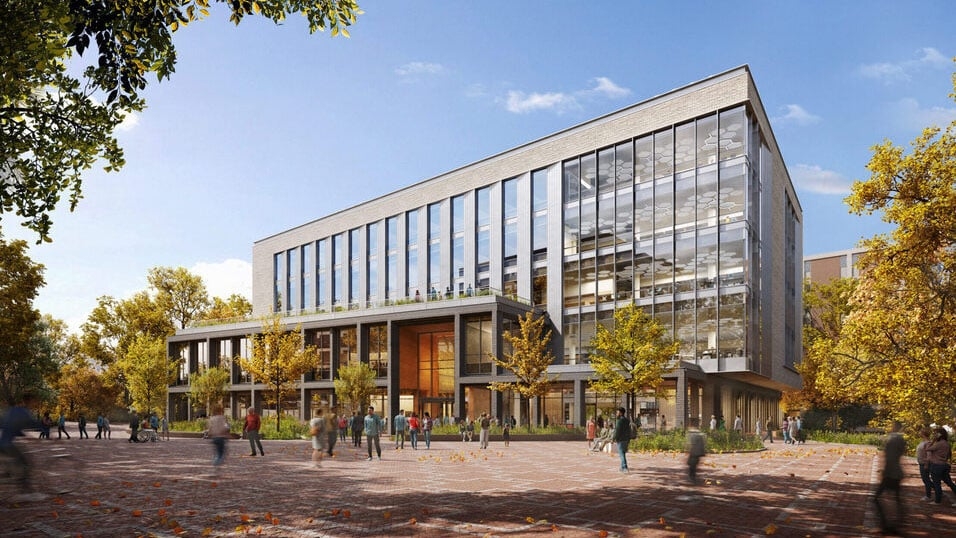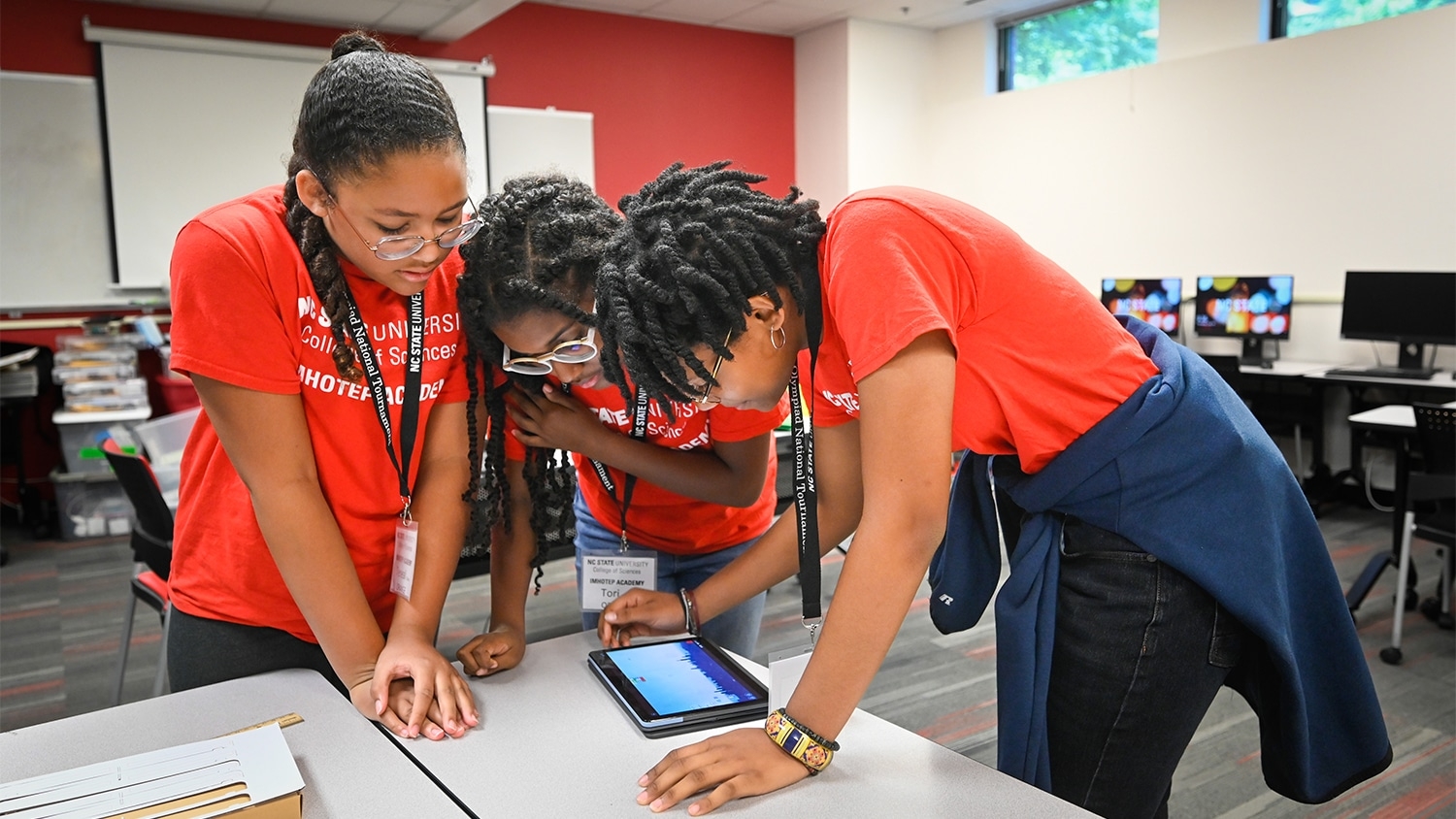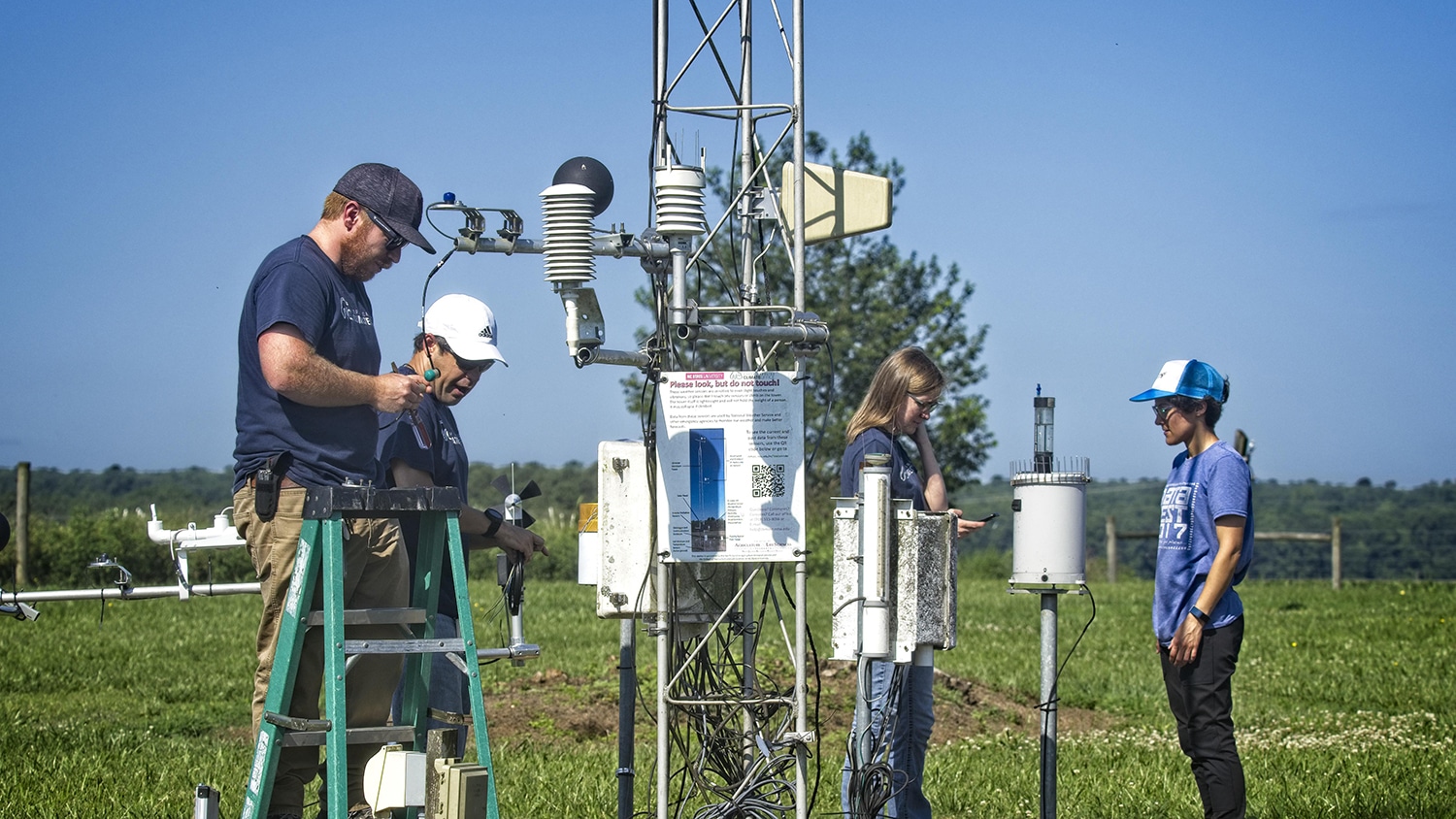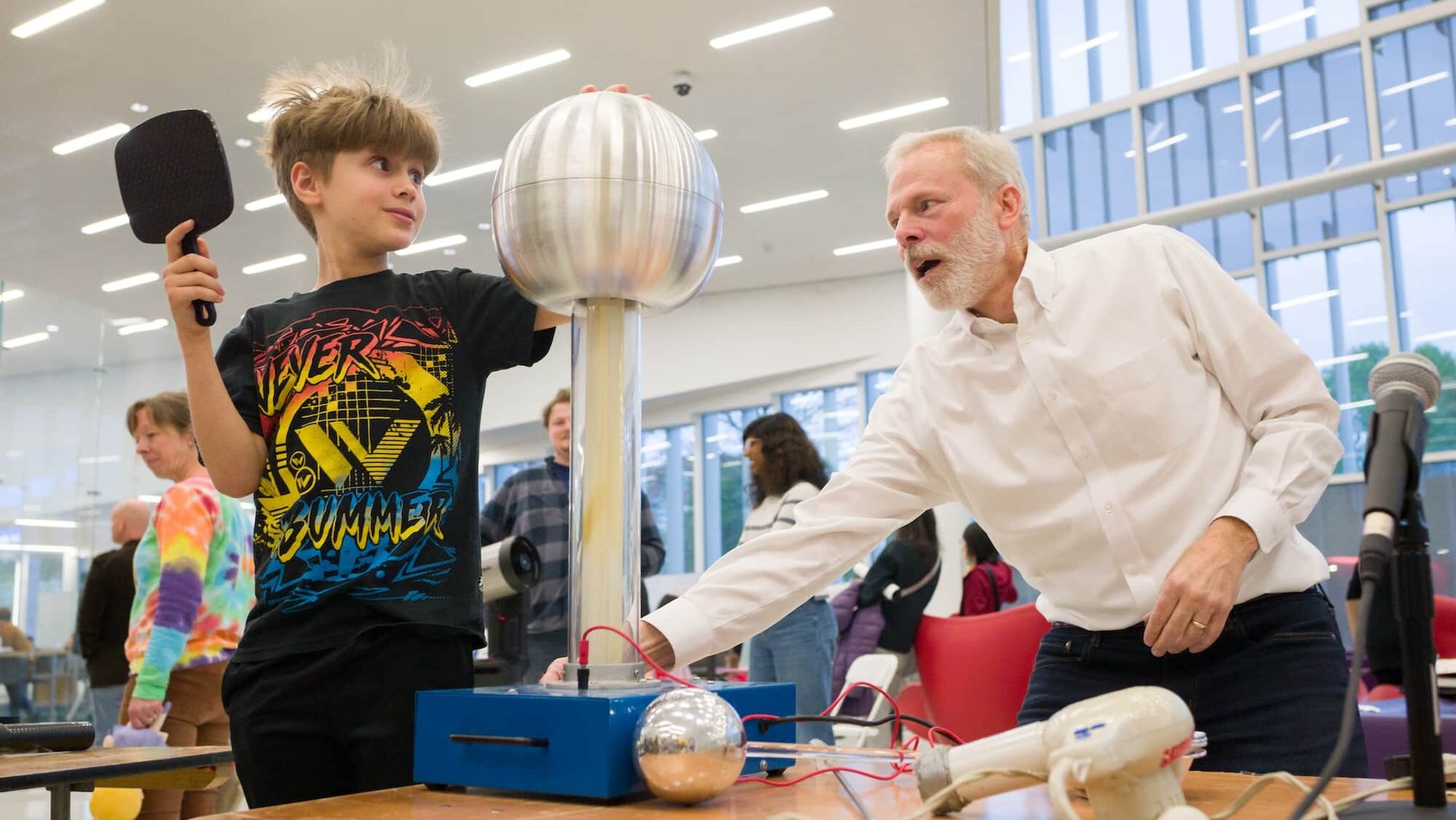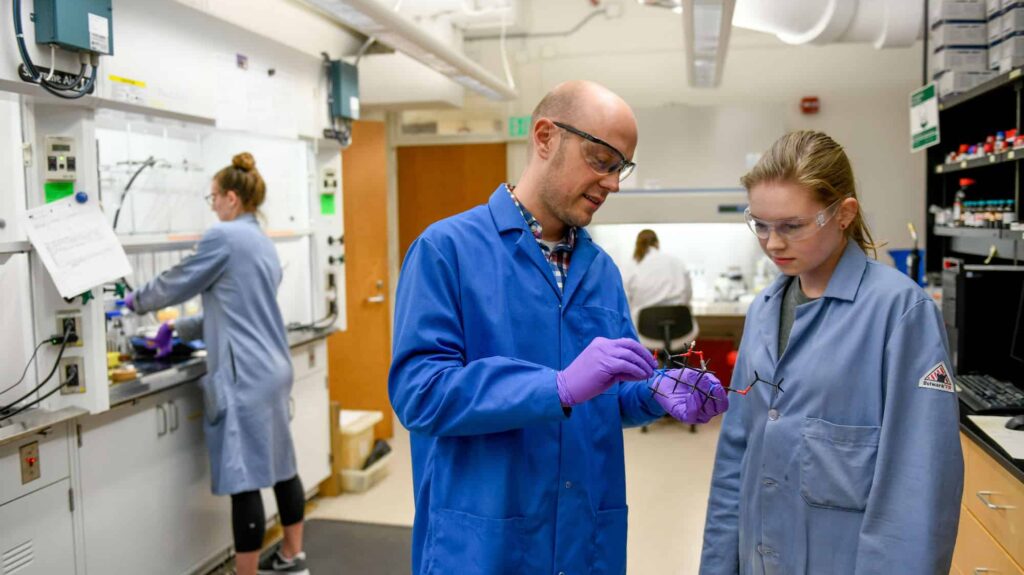Our Strategic Priorities: A Closer Look
Learn more about the priorities that are shaping our future in research, teaching and outreach.
Breaking Down Our Priorities
The College of Sciences’ mission, vision, values and culture are expressed in our 2021-2026 strategic plan and culture charter. Here, we take a closer look at the plan’s strategic priorities and identify 10 key areas that will shape our activities for the next decade and beyond. These priorities emerged from grassroots discussions within our units during the 2024-25 academic year.
We have already progressed toward implementing many of these ideas, including the commitment of resources. Other priorities will require financial support in the years ahead, but this is not a document requesting support. It is a collection of aspirations that will shape our future and inspire us to be great.
1. Strengthening our core foundational research
The College of Sciences has six academic departments: Biological Sciences; Chemistry; Marine, Earth and Atmospheric Sciences; Mathematics; Physics and Statistics. Research within these units strengthens each field’s disciplinary foundation, uncovers new information, and develops theories that serve to explain our understanding of “the how and why”.
The successful integration of science and non-science disciplines can only occur when a robust educational foundation is already in place. We will continuously invest in core science to serve our students and society to resolve the challenges of an increasingly complex world.
2. Enhance integrative science and multidisciplinary research
The college invests in foundational research that intersects and integrates across disciplines, both within and outside of the college. Research and innovation in these cross-cutting areas provides the impetus for societal advancement.
Areas in which the college will lead and invest in knowledge generation include scientific interests in climate, the environment, human health, energy and sustainability; quantum science; science that drives development in artificial intelligence, which in turn advances science; and risk analysis and extreme value theory. Partnerships within and across our departments, as well as with researchers in other NC State colleges and outside entities, are vital for pushing the boundaries of science as a collective force.
3. Construct interdisciplinary buildings for the future
New and improved infrastructure for interdisciplinarity will foster and enhance research and teaching opportunities. Projects will include a sustainability-focused building that would be home to research on energy, human health and the environment, and geohazard risk and resilience; a mathematical sciences institute; and an interdisciplinary teaching building.
The sustainability building will serve as the hub for the Climate and Sustainability Academy, the Blue Economy Innovation Program, the future NC Hazard Corps and other programs. Complementing this will be the Transformative Research Institute in Mathematical Sciences, to be known as TRIMS, a new center fostering interdisciplinary research through thematic workshops, semester-long programs and clusters in artificial intelligence, quantum science, climate modeling and more. TRIMS initiatives will include faculty fellowships, postdoctoral training and industry-linked problem-solving clinics. The new teaching building will meet the growing needs of students and support modern pedagogy. For each building, strategic growth, rather than sheer expansion, will be prioritized.
4. Support transformative teaching, as well as workforce generation and preparation
The college is deeply committed to training the next generation of scientific leaders by equipping students with crucial skills that will help them thrive in the workplaces of the 21st century. Our comprehensive degree programs will prepare students for a diverse range of career paths, ensuring that they are well-rounded individuals. This involves combining rigorous disciplinary depth with a broader skill set that empowers them for the collaborative and interdisciplinary positions that are increasingly common in today’s job market.
Our comprehensive degree programs will prepare students for a diverse range of career paths, ensuring that they are well-rounded individuals.
To enhance their educational experience, students will be offered significant flexibility in degree pathways, including options such as concentrations that recognize various career routes, as well as accelerated bachelor’s/master’s programs that expedite their entry into the workforce. In addition, we will offer credentials that certify not just academic achievements but also essential workforce-relevant skills, ensuring that our graduates are highly employable. Our curricula will actively incorporate research-based pedagogical techniques, foundational knowledge and problem-solving skills to ensure that our programs remain relevant and adapt to the evolving stakeholder needs. This collaborative approach will help us create an educational environment that is both innovative and supportive, fostering the growth and success of our students in their future careers.
5. Show national leadership in interdisciplinary-based science education research
The college continues to build upon our historic leadership in discipline-based education research through targeted hires across multiple disciplines and departments. The intent is to build a larger-scale and nationally recognized effort to strengthen educational activities across the college, and create true interdisciplinary educational research across previously siloed disciplines.
New partnerships with the Integrative Sciences Initiative will allow faculty to not only bring cutting-edge pedagogy to our instructional mission, but also create opportunities for new research avenues that span disciplines in our college and others. New initiatives will focus on studying outreach and policy efforts in addition to student learning objectives. All of these will ultimately lead to greater student success.
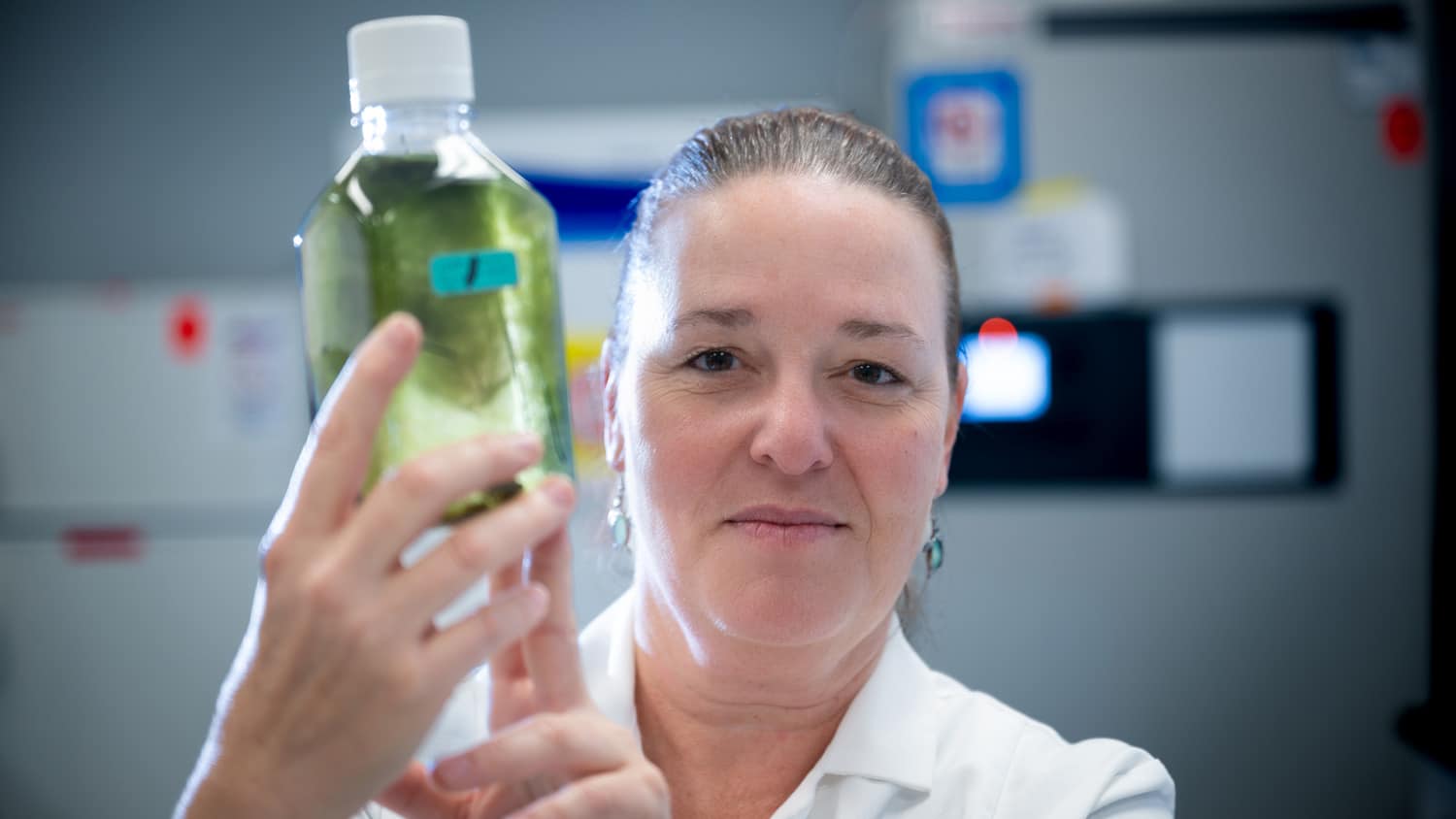
6. Create a hub for science literacy, communication, and outreach
The college will be a hub for open science, supporting the enormous demand for science communication coursework and information. Important to these activities will be coordinating our widespread science communication and outreach efforts — including those in our academic departments, the Science House and the State Climate Office — into an interconnected network. This hub, coordinated by a team of science educators, will collect and share best practices about science communication, including courses, workshops and events on creating social media content, developing strong science writing skills and employing illustration, graphic design and multimedia tools to bring science to life.
This hub will create and expand upon partnerships with other campus units involved in science communication, such as the Leadership in Public Science cluster. This work will help students develop the professional skills they need to succeed in any field, not just the field in which they studied, and create a more informed and prosperous populace.
Our outreach efforts
7. Ensure that our graduates are prepared for a rapidly changing world
The college is committed to preparing our graduates to be grounded in scientific knowledge and equipped to lead, adapt, think critically and innovate in a rapidly changing world. Our vision of the 21st-century scientist includes a deep understanding of core scientific principles alongside an understanding of the social sciences, data fluency, digital tools such as AI, and interdisciplinary collaboration. Effective science communication is emphasized, ensuring our graduates can engage a variety of audiences, enlighten public discourse and inform policy.
Understanding local, national and global communities – and the role of science in those communities – is vital for our students to understand and address complex challenges and communicate with stakeholders. Our students are prepared to solve the problems of today and tomorrow – shaping the world through science.
8. Boost alumni engagement
The college’s alumni community stretches across North Carolina, the nation and beyond. Alumni contribute to all areas of the workforce, adding to the nation’s economy, addressing local and grand challenges, and helping to create knowledge and innovation. Engaging with alumni allows us to draw upon their extensive experience and expertise, enhance our collective understanding of the future workforce, build professional networks for our students, strengthen industrial collaboration, and foster a lifelong sense of community.
Led by our Office of Advancement, we will build on the work of our outstanding alumni and foundation boards, and enhance alumni engagement through social media, in-person events, mentorship programs, internship opportunities and campus visits. Among other initiatives, we will also develop an alumni-residence program and an alumni career-development team. Highlighting alumni engagement will help highlight the many meaningful contributions the college and its alumni make to society.
9. Develop partnerships that fuel economic growth
The college is dedicated to forging transformative partnerships with industry and federal agencies that drive innovation, stimulate economic growth and address real-world problems. Key to this goal is cultivating relationships with employers that help jump-start our students’ careers, as well as driving corporate and individual philanthropy that supports the growth and success of our research and teaching communities.
Through these alliances, we can promote a thriving culture of entrepreneurship and collaborative research, leading to unprecedented economic, social and intellectual depth that harnesses perspectives from industry and academia to tackle the complex challenges facing our society. By strengthening external partnerships and championing collaborative research, the college is well-positioned to lead in scientific innovation and make a profound difference worldwide.
10. Take science across borders
Global engagement is an important part of the College of Sciences’ mission. Science today is a worldwide effort, and students and researchers benefit greatly from working across borders. The impact of the college’s research and teaching extends beyond North Carolina to distant parts of the world, with profound scientific, socio-economic and political implications. We need to fully understand and engage with the global community to provide world-class science research and education that improves our world.
Boosting our global engagement will help enhance research creativity and productivity, provide transformative opportunities for students, and help increase our global profile and rankings. This work will include research collaborations, study abroad programs, exchange programs and distance learning courses, working in collaboration with the Office of Global Engagement.
